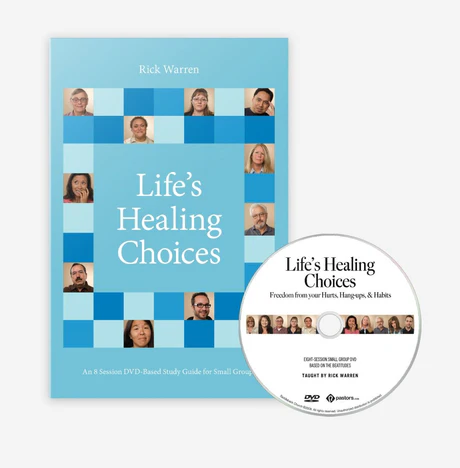All living things grow. It’s evidence of life. If a child doesn’t grow to physical maturity, that’s a tragedy.
And if people in our congregations don’t grow spiritually, that’s a tragedy, too.
Many churches focus on getting people in the doors and maybe making a salvation decision. But that’s only a small part of our responsibility.
Jesus gives us another example. During his ministry, he started by urging people to “come and see.” And they did! People began to follow him. But then Jesus slowly turned up the heat. He began adding qualifiers, statements that start with “You’re my disciple if”:
- You love one another (John 13:35)
- You abide in his Word (John 8:31)
- You deny yourself (Matthew 16:24)
- You make Jesus your prime allegiance (Luke 14:26)
Eventually, Jesus took it a step further and said that a person had to “come and die” (Luke 14:27) to be a disciple.
But Jesus didn’t start with “come and die.” He moved people slowly from “come and see” to “come and die.”
That’s what discipleship is all about. And I learned early in my ministry at Saddleback that
I couldn’t grow the church. God told me clearly when I was nearing exhaustion in the first year of the church that growing Saddleback wasn’t my job.
The message from God was that if I focused on growing people, he would grow the church. In fact,
The Purpose Driven Church was never about growing the church. It was all about growing people.
Over the years, we’ve developed several tools at Saddleback to help us grow people by one small step at a time. Here are five of those tools.
Sermon Notes
People typically forget most of what they’ve heard in 72 hours. We need to do better than that if we’re going to help people apply biblical truth to their lives. Retention goes up if people aren’t just hearing what you’re saying but are also writing it down. The shortest pencil is longer than the longest memory.
That’s why we provide sermon outlines every week. The outlines include the relevant Scripture passages for the week and fill-in-the-blank outlines where attendees can fill in the missing words and also circle and underline other important words.
People hold on to these outlines for years. Sometimes they stick them away in their Bibles. Other times they file them away at home. They tend to give people multiple opportunities to engage with the teaching.
Spiritual Growth Covenants
We use four covenants at Saddleback as part of our
CLASS 101-401 system. People sign the first one, the Membership Covenant, when they join the church. They sign the second one, the Maturity Covenant, when they commit to the spiritual habits necessary for growth (joining a small group, having a quiet time, giving, etc.). The third covenant allows people to express their commitment to using their SHAPE (Spiritual Gifts, Heart, Abilities, Personality, and Experiences) in ministry at Saddleback. When people commit to the fourth covenant, they agree to participate in some kind of PEACE mission trip.
Covenants are biblical. You’ll find them throughout Scripture. You’ll find them throughout church history. Frankly, if you have a membership class but no membership covenant, it’s like a wedding ceremony without vows. The time when a couple makes a commitment to one another is the most important part of a wedding. The same is true for a membership class. It doesn’t make much sense to tell people what you expect from members if you don’t ask them to commit to doing what you expect.
Commitment Cards
For people to grow, we must challenge them to make commitments. That’s why we built Saddleback on our weekly commitment card. It’s not just about the commitment to come to Christ or to join the church. We have about 30 different commitments people can make at our church. I never preach without preaching for commitment. Why? Commitment is how people grow.
Everything starts with a decision. I know many pastors who preach great sermons but walk away before drawing the net for salvation. You should draw the net for salvation every time.
But don’t stop there. Give people specific applications for every sermon you preach. Don’t just tell people to be better parents. Ask them to make a commitment to a specific practice that makes them better parents. Every single sermon you preach comes down to two words: “Will you?” Will you apply God’s Word to your life?
The commitment card gives every person in your congregation an opportunity to say, “Yes!” when you ask that question each week.
Small Groups
We grow best when we grow together. Babies don’t just grow up on their own. They need a family of some kind. And the people in our churches need a family to grow. One of the great myths of modern Christianity is that you can grow to spiritual maturity without the help of others. In America today, we have Christian movies, Christian radio, Christian bookstores, Christian podcasts, and Christian rallies. For many people in our churches, it’s tempting for them to think they can build their own spiritual growth, on their own terms.
But that’s not the picture of growth we get in the Bible. You can’t grow without the church—and the church is more than just people sitting and soaking in sermons each week. The church is about relationships. There are 58 “one another” statements (such as “love one another,” “serve one another,” “pray for one another”) in the New Testament. Your congregation can’t obey any of those commands without other people in their lives.
Explore our small group training resources
HERE.
Spiritual Growth Campaigns
Every year at Saddleback we host at least one
spiritual growth campaign. And we often have two: one campaign in the spring and the other in the fall. You’ve probably heard of some of them (such as
40 Days of Prayer,
40 Days in the Word,
What On Earth Am I Here For,
Transformed, and
Daring Faith). By far, the best way to engage people in spiritual growth is through multiple reinforcements, where you teach the same biblical truth by hearing it, reading it, discussing it, doing it, and memorizing it together as a church family.
That’s what we do during our campaigns. People in our congregation don’t just listen to a sermon series on a particular truth; they’re also reading a book about it, discussing it in their small groups, and memorizing Scripture on the topic. These campaigns have been responsible for thousands of baptisms and tens of thousands of spiritual decisions at Saddleback.
These tools help people take gradual steps of faith, moving from “come and see” to “come and die.”








